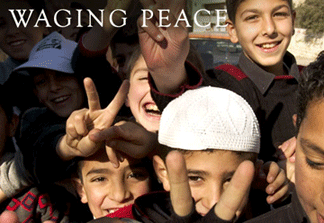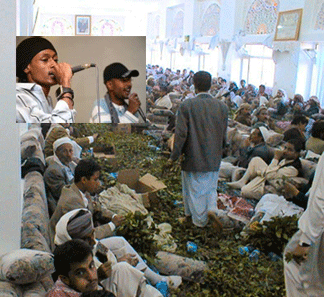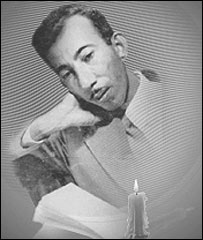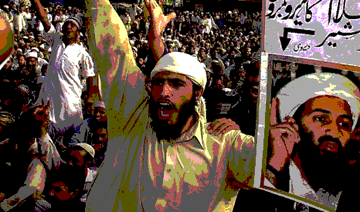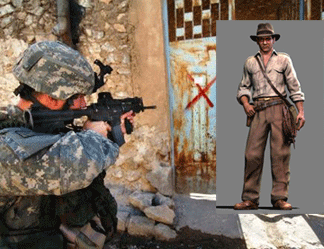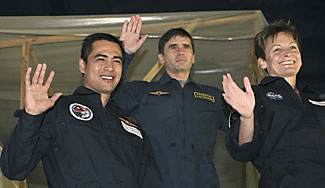
(left to right) Sheikh Muszaphar Shukor of Malaysia, Yury Malen¬chenko of Russia, and Peggy Whitson of the US will fly on a Russian rocket.
How does an Islamic astronaut face Mecca in orbit?
Decisions by a conference of Muslim leaders and scientists will help a Malaysian doctor stay observant in outer space.
By Bettina Gartner | Contributor to The Christian Science Monitor
Allah is watching – even in outer space. And that poses a problem for a devout Muslim astronaut who is scheduled to fly to the International Space Station (ISS) aboard a Russian rocket this week.
Imagine trying to pray five times a day in zero gravity while having to face an ever-shifting Mecca hundreds of miles below. How do you ritually wash yourself without water? And, now that it’s Ramadan, how do you fast from sunrise to sunset when you see a sunrise and a sunset every 90 minutes? Sheikh Muszaphar Shukor, a Malaysian astronaut, must decide before the Oct. 10 launch.
“I am Islamic,” Sheikh Shukor told a press conference in Moscow, according to the Associated Press, “but my main priority is more of conducting experiments.” Continue reading A Qibla Query: Facing Mecca and Fasting in Outer Space
